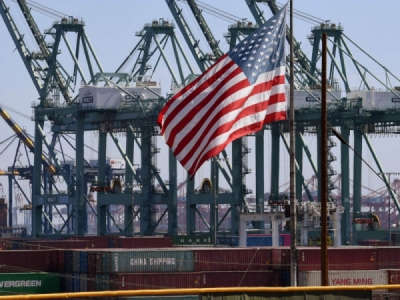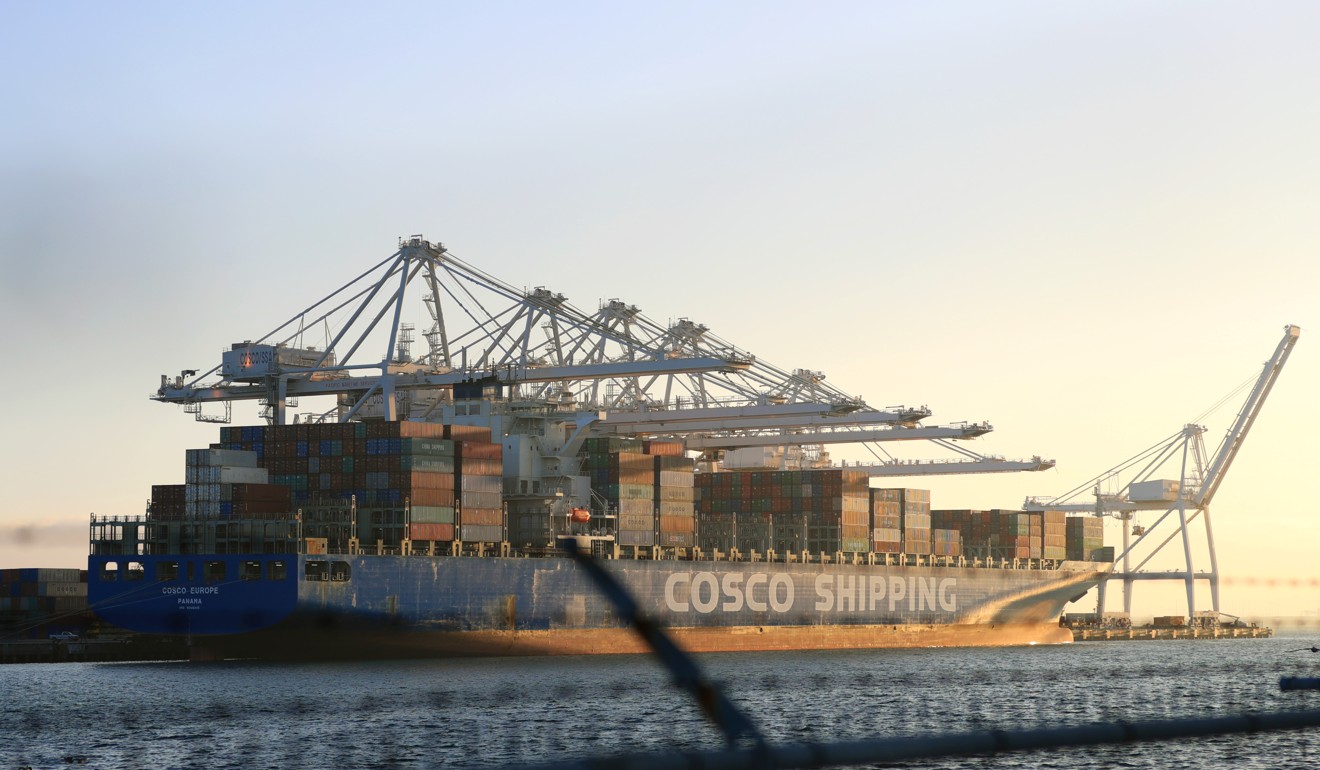
Posted on May 1, 2019
- Sale of Hong Kong-based firm that had run the terminal for three decades to Chinese state-owned Cosco in 2017 raised concerns among US security agencies
- Share price of OOIL rises as sale of second largest port in the US is expected to net a US$1.29 billion gain
A Hong Kong-based company has been forced to sell its American container port after the US government raised security concerns about its parent being a Chinese state-owned shipping giant.
Orient Overseas (International), which is majority-owned by Cosco Shipping Holdings, will sell off its entire interest in Long Beach Container Terminal in California for US$1.78 billion (HK$13.97 billion) in cash, according to a stock exchange filing on Tuesday morning.
The sale to a US infrastructure fund is the fulfilment of a national security agreement signed last year and is expected to net OOIL a profit of US$1.29 billion (HK$10.15 billion), the company said in the announcement.
OOIL, founded as a shipping and logistics business in 1969 by the family of former Hong Kong Chief Executive Tung Chee-hwa, has owned the Long Beach port for more than three decades.

China’s Cosco took indirect control of the Long Beach port in 2017 when it bought Hong Kong-based Orient Overseas. Photo: Xinhua
But its sale to Cosco in July 2017 for HK$49.23 billion raised a red flag with US security agencies, which were unhappy with the idea of a state-owned firm taking indirect ownership of a major port. Cosco now owns 75 per cent of OOIL.
After lengthy negotiations, OOIL and Cosco signed the agreement with the US Departments of Homeland Security and jJustice, promising to sell the terminals to “a suitable, unrelated third party” deemed “acceptable” to the US department.
The second largest port by volume, Long Beach imported 6.8 million TEU (twenty-foot equivalent units) in 2016, more than New York and second only to Los Angeles, according to data from the World Shipping Council.
The buyer was identified on Tuesday as an unlisted North American fund called Macquarie Infrastructure Partners (MIP).
MIP is managed by Macquarie Infrastructure and Real Assets, one of the world’s biggest asset managers with A$185.9 billion (US$130.91 billion) assets in infrastructure, real estate, agriculture and energy. It is part of the Sydney-headquartered financial conglomerate Macquarie Group.
OOIL’s share price rose 3.5 per cent to close at HK$53 on Tuesday after the deal was announced in the morning, while its controlling shareholder Cosco Shipping gained 1.1 per cent to close at HK$3.65. The broader Hang Seng Index fell by 0.7 per cent.
“The announcement of the buyer for the Long Beach Terminal is positive to both OOIL and Cosco Shipping as it removes the uncertainties about who will buy the assets,” said Jeffrey Chan, a founding partner of Hong Kong-based Oriental Patron Financial Group. “The deal also provides cash for the company to do other expansion of ports or its shipping businesses.”
Cosco’s purchase of OOIL springboarded owners Tung Chee-hwa and his brother Chee-chen into 17th place in the 2018 Forbes Hong Kong Rich List as their combined wealth surged 73 per cent to US$5.1 billion.
“Over the past 30 years, we have developed Long Beach Container Terminal into the safest, most efficient and lowest-emission terminal in the United States,” said Andy Tung, co-chief executive of OOIL.
The deal requires OOIL to continue to use the Long Beach Terminal for a 20-year period for an agreed vessel and rail tariff. If it is unable to meet the minimum volume commitment, OOIL must pay for the shortfall, the company announcement said.
Karl Kuchel, chief executive of MIP, said his company wanted to buy the Long Beach port because it serves as a gateway for trans-Pacific trade.
“We are also committed to completing the current expansion of Long Beach Container Terminal by 2022, which will significantly increase the capacity of the terminal,” Kuchel said.
OOIL said it has not yet decided how to use the cash it gains from the transaction.
The Long Beach terminal had an audited net book value of US$345.24 million as of the end of last year. Its net profit last year reached US$85.86 million, up four times from a year earlier.
This article appeared in the South China Morning Post print edition as: Tung firm forced to sell US port over security fears
Source: scmp.com





